![Full Blast: Rio [VINYL] (Trost Records) Full Blast: Rio [VINYL] (Trost Records)](https://www.teuthida.com/productImages/misc4/26565.jpg)
A limited live album from German saxophonist Peter Brotzmann's long-running Full Blast trio with the precise and dynamic Swiss rhythm section of Marino Pliakas on electric bass and Michael Wertmuller on drums, captured at Audio Rebel, in Rio de Janeiro, Brazil in 2016 as they tear through a tumultuous set of five burning improvisations of passionate playing.
Out of Stock
Quantity in Basket: None
Log In to use our Wish List
Shipping Weight: 24.00 units
Sample The Album:
Peter Brotzmann-reeds
Michael Wertmuller-drums
Marino Pliakas-electric bass
Click an artist name above to see in-stock items for that artist.
UPC: 9120036682801
Label: Trost Records
Catalog ID: TROST 182LP
Squidco Product Code: 26565
Format: CD
Condition: New
Released: 2018
Country: Austria
Packaging: LP
Recorded at Audio Rebel, in Rio de Janeiro, Brazil, in 2016, by Joao Paulo "Binos" Franklin and Pedro Azevedo.
"Recorded on the last date of a demanding 2016 South American tour, Rio is Full Blast's 4th album (if you don't count the 2 Full Blast & Friends records) and if you were hoping to see their gentler side this time around you're going to be very disappointed. For the unedified, Full Blast is a thermonuclear reeds/bass/drums device consisting of Peter Brötzmann, Marino Pliakas, and Michael Wertmueller. True to their name they play like a force of nature, something substantial to be reckoned with akin to an aural tsunami. Pliakas and Wertmueller play as a single organism, the rattling/rumbling molten core is one of the key elements that make Full Blast's sound work as well as it does. Their blistering tempest is well-suited to Brötzmann's fiery playing and he joyfully supplies lightning slashes for their ominous thunderclouds, electrifying the proceedings with his pungent tenor squall.
"Rio 1" jumps off instantly with Pliakas and Wertmueller following the lead of Brötzmann's gruff war-horn. Pliakas' bass lines are a blur of low rumbling tremors matching the frenetic intensity of Wertmueller's drums. Brötzmann on tenor plays with his characteristic fervor; it's amazing at his age that he is capable of so much energy. Wertmueller's sound is absolutely impenetrable, blackening the sky with snare and kick drum clusters. "Rio 2" starts with a rattling drum intro which is met at full force by the unyielding bassline and Brötzmann's crowing tarogato (I think). The bass and drums build to an overwhelming swell, increasing in speed and power until the sound is absolutely punishing and physical, eliciting audible praises from the audience as they are besieged by the aural mayhem. Brötzmann unleashes yowling trills and growls, galvanized by the impassioned roar of the rhythm section and the audience's howls of delight. "Rio 3" begins with a two minute build up from Pliakas and Wertmueller before Brötzmann enters with rough clarinet shapes and reed squeal. The track ends in a dizzying two minute run from Pliakas and Wertmueller, who absolutely pummel the audience with their low frequency shock waves. On "Rio 4", Brötzmann is back on the tenor, alternating curt staccato phrases with muscular baying in his thick vibrato until the song reaches a crescendo at the near the six & a half minute mark after which Pliakas and Wertmueller pick up speed with Brötzmann honking and yelping passionately over their din. Beginning with an intense percussive build-up, "Rio 5" finds Brötzmann outlining the melody of Albert Ayler's Prophecy on tenor. The bass playing sounds it's most guitar-like here, with Pliakas utilizing his pedalboard to give his lines a searing hot edge. Brötzmann shifts back to clarinet and continues his sketches of roughhewn shapes through the undulating soundscape of the rhythm section. The album ends as abruptly as it began and the audience shows it's appreciation with a riotous roar.
Rio is a visceral thrill, a powerful rush of sound that overwhelms the listener from the start, creating a sensory overload that only seems to accelerate and gain momentum. Brötzmann himself sounds fantastic and very much in his element, raw intensity never being something that has lacked from his work. His playing adds lyricism to the overall pummeling, and his utilization of different horns adds some sonic variety, as does Pliakas' use of his pedalboard. The energy between the audience and the band here is excellent, each feeding off the other which drives the intensity up even further. The recording quality is amazing and does a great job of conveying this energy to the listener. I'd consider this a must have for Brötzmann fans and for fans of high energy music in general. A decidedly enjoyable listen, I recommend it at maximum volume."-Nick Metzger, The Free Jazz Collective
Get additional information at The Free Jazz Collective
Artist Biographies
• Show Bio for Peter Brotzmann "Born Remscheid, Germany on 6 March 1941; soprano, alto, tenor, baritone and bass saxophones, a-clarinet, e-flat clarinet; bass clarinet, tarogato. Peter Brötzmann's early interest was in painting and he attended the art academy in Wuppertal. Being very dissatisfied with the gallery/exhibition situation in art he found greater satisfaction playing with semi-professional musicians, though continued to paint (as well as retaining a level of control over his own records, particularly in record sleeve/CD booklet design). In late 2005 he had a major retrospective exhibition jointly with Han Bennink - two separate buildings separated by an inter-connecting glass corridor - in Brötzmann's home town of Remscheid. Self-taught on clarinets, he soon moved to saxophones and began playing swing/bebop, before meeting Peter Kowald. During 1962/63 Brötzmann, Kowald and various drummers played regularly - Mingus, Ornette Coleman, etc. - while experiencing freedoms from a different perspective via Stockhausen, Nam June Paik, David Tudor and John Cage. In the mid 1960s, he played with American musicians such as Don Cherry and Steve Lacy and, following a sojourn in Paris with Don Cherry, returned to Germany for his unorthodox approach to be accepted by local musicians like Alex von Schlippenbach and Manfred Schoof. The trio of Peter Brötzmann, Peter Kowald and Sven-Ake Johansson began playing in 1965/66 and it was a combination of this and the Schoof/Schlippenbach Quintet that gave rise to the first Globe Unity Orchestra. Following the self-production of his first two LPs, For Adolphe Sax and Machine gun for his private label, BRÖ, a recording for Manfred Eicher's 'Jazz by Post' (JAPO) [Nipples], and a number of concert recordings with different sized groups, Brötzmann worked with Jost Gebers and started the FMP label. He also began to work more regularly with Dutch musicians, forming a trio briefly with Willem Breuker and Han Bennink before the long-lasting group with Han Bennink and Fred Van Hove. As a trio, and augmented with other musicians who could stand the pace (e.g. Albert Mangelsdorff on, for example, The Berlin concert), this lasted until the mid-1970s though Brötzmann and Bennink continued to play and record as a duo, and in other combinations, after this time. A group with Harry Miller and Louis Moholo continued the trio format though was cut short by Miller's early death. The thirty-plus years of playing and recording free jazz and improvised music have produced, even on just recorded evidence, a list of associates and one-off combinations that include just about all the major figures in this genre: Derek Bailey (including performances with Company (e.g. Incus 51), Cecil Taylor, Fred Hopkins, Rashied Ali, Evan Parker, Keiji Haino, Misha Mengelberg, Anthony Braxton, Marilyn Crispell, Andrew Cyrille, Phil Minton, Alfred 23 Harth, Tony Oxley. Always characterised as an energy player - and the power-rock setting of Last Exit with Ronald Shannon Jackson, Sonny Sharock and Bill Laswell, or his duo performances with his son, Casper, did little to disperse this conviction - his sound is one of the most distinctive, life-affirming and joyous in all music. But the variety of Brötzmann's playing and projects is less recognised: his range of solo performances; his medium-to-large groups and, in spite of much ad hoc work, a stability brought about from a corpus of like- minded musicians: the group Ruf der Heimat; pianist Borah Bergman; percussionist Hamid Drake; and Die like a dog, his continuing tribute to Albert Ayler, with Drake, William Parker and Toshinori Kondo. Peter Brötzmann continues a heavy touring schedule which, since 1996 has seen annual visits to Japan and semi-annual visits to the thriving Chicago scene where he has played in various combinations from solo through duo (including one, in 1997, with Mats Gustafsson) to large groups such as the Chicago Octet/Tentet, described below. He has also released a number of CDs on the Chicago-based Okka Disk label, including the excellent trio with Hamid Drake and the Moroccan Mahmoud Gania, at times sounding like some distant muezzin calling the faithful to become lost in the rhythm and power of the music. The "Chicago Tentet" was first organized by Brötzmann with the assistance of writer/presenter John Corbett in January 1997 as an idea for a one-time octet performance that included Hamid Drake and Michael Zerang (drums), Kent Kessler (bass) and Fred Lomberg-Holm (cello), Ken Vandermark and Mars Williams (reeds), and Jeb Bishop (trombone). The first meeting was extremely strong and warranted making the group an ongoing concern and in September of that same year the band was expanded to include Mats Gustafsson (reeds) and Joe McPhee (brass) as permanent members (with guest appearances by William Parker (bass), Toshinori Kondo (trumpet/electronics), and Roy Campbell (trumpet) during its tenure) - all in all a veritable who's who of the contemporary improvising scene's cutting edge. Though the Tentet is clearly led by Brötzmann and guided by his aesthetics, he has been committed to utilizing the compositions of other members in the ensemble since the beginning. This has allowed the band to explore an large range of structural and improvising tactics: from the conductions of Mats Gustafsson and Fred Lonberg-Holm, to the vamp pieces of Michael Zerang and Hamid Drake, to compositions using conventional notation by Ken Vandermark and Mars Williams, to Brötzmann's graphic scores - the group employs almost every contemporary approach to composing for an improvising unit. This diversity in compositional style, plus the variety in individualistic approaches to improvisation, allows the Tentet to play extremely multifaceted music. As the band moves from piece to piece, it explores intensities that range from spare introspection to all out walls of sound, and rhythms that are open or free from a steady pulse to those of a heavy hitting groove. It is clear that the difficult economics of running a large band hasn't prevented the group from continuing to work together since its first meeting. Through their effort they've been able to develop an ensemble sound and depth of communication hard to find in a band of any size or style currently playing on the contemporary music scene." ^ Hide Bio for Peter Brotzmann • Show Bio for Michael Wertmuller Michael Wertmuller: "Born in 1966 in Thun (Switzerland), the composer and drummer completed his studies at the Swiss Jazz School, at the Bern University of the Arts and at the Sweelinck-Konservatorium Amsterdam. From 1995 to 1999 he was a student of Dieter Schnebel at the Berlin University of the Arts. Wertmüller was a member of the Berner Sinfonieorchester as well as a guest at the Concertgebouw Orkest Amsterdam. He played in addition to his solo concerts with various chamber music ensembles and was involved in numerous radio recordings and world premieres. His works will be performed at the Donaueschinger Musiktage, MaerzMusik Berlin, the Lucerne Festival, musica viva München, the Ultraschall Festival of the Akademie der Künste Berlin, the Biennale Tel Aviv, the JazzFest Berlin, Wien Modern, the Huddersfield Contemporary Music Festival or the London Jazz Festival listed. Wertmüller composed for Christoph Schlingensief as well as the Cologne Theater, the Schauspiel Stuttgart and the Schauspielhaus Zürich. The opera "Anschlag" (Libretto Lukas Bärfuss) premiered in 2013 at the Lucerne Festival, the opera "Do not cry, sing" (Libretto Dea Loher) 2015 at the Hamburg State Opera. The comic opera "Valentin" with director Herbert Fritsch was premiered at the Deutsches Schauspielhaus Hamburg in 2017. For the past 25 years, he has toured hundreds of concerts with the band Alboth, the trio Full Blast (together with Peter Brötzmann and Marino Pliakas) and various other combinations around the world for tours and festivals. He combines collaboration in various contexts with authors such as Dea Loher, Peter Weber, Monika Rinck, Michael Lentz, Reinhard Jirgl, Lukas Bärfuss or Wolfgang Hilbig. Since 2005 he has been a visiting lecturer at the Humboldt University in Berlin, the Academy of Arts and at the University of the Arts, Berlin." ^ Hide Bio for Michael Wertmuller • Show Bio for Marino Pliakas "Marino Pliakas (born November 1, 1964 in Trogen, Appenzell Outer Rhodes) is a Greek-Swiss musician (guitar, electric bass) and lecturer at the Zurich University of From 1984 to 1988 Pliakas studied classical guitar at the Zurich Conservatory (Instrumental Teaching Diploma) and History, Musicology and Russian Studies at the Universities of Zurich and St. Petersburg. In 1995 he founded with Dominik Blum and Lucas Niggli, the still existing " Hammond -Avantcore trio" Steamboat Switzerland. He also plays in the trio Full Blast with Peter Brötzmann and Michael Wertmüller. He was also active in the improvisation quartet Die Firma and with Stephan Wittwer (in duo and trio with Michael Wertmüller). He has also appeared with Caspar Brötzmann, John Cale, Nels Cline, Holger Czukay, Jacques Demierre, Robert Dick, Fred Lonberg-Holm, Steve Noble, Norbert Möslang, Jim O'Rourke, Ken Vandermark, Trevor Watts and Kenny Wollesen. He has performed in many European countries, Egypt, South Africa, Mozambique, Israel, China, Japan, North America and Brazil. From 1998 to 2003 he was President of the Zurich section of the International Society for Contemporary Music, In 2019 he plays with Dominik Blum and Lucas Niggli in the trio Steamboat Switzerland." ^ Hide Bio for Marino Pliakas
3/31/2025
Have a better biography or biography source? Please Contact Us so that we can update this biography.
3/31/2025
Have a better biography or biography source? Please Contact Us so that we can update this biography.
3/31/2025
Have a better biography or biography source? Please Contact Us so that we can update this biography.
Track Listing:
SIDE A
1. One 7:51
2. Two 5:57
3. Three 6:36
SIDE B
1. Four 10:13
2. Five 10:08
Vinyl Recordings
Improvised Music
Jazz
Free Improvisation
European Improvisation, Composition and Experimental Forms
Trio Recordings
Peter Brotzmann
Staff Picks & Recommended Items
Search for other titles on the label:
Trost Records.


![Full Blast: Rio [VINYL] (Trost Records) Full Blast: Rio [VINYL] (Trost Records)](https://www.teuthida.com/productImages/full/26565.Full.jpg)

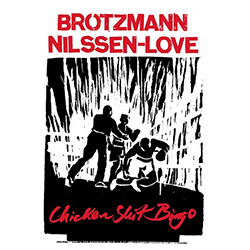
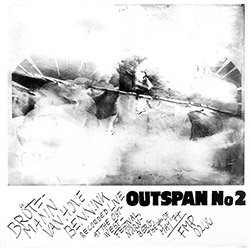


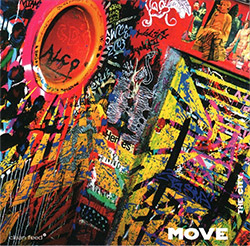
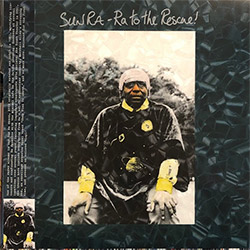
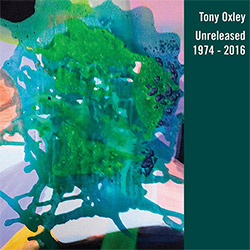
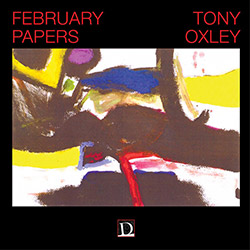
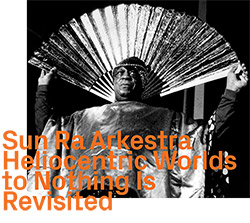
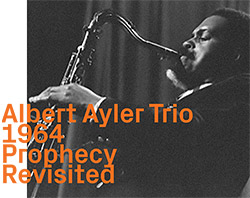
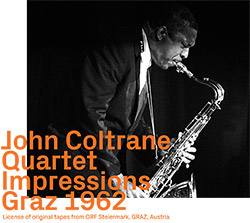


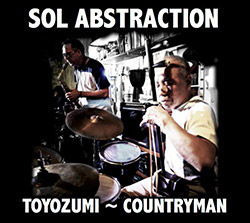

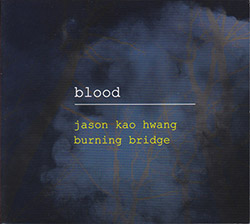
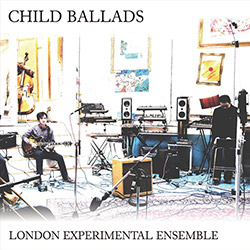
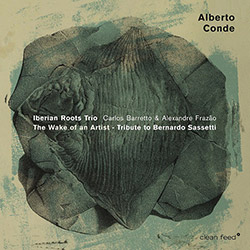
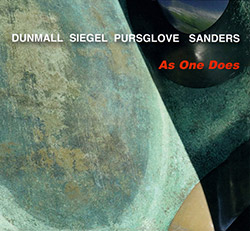
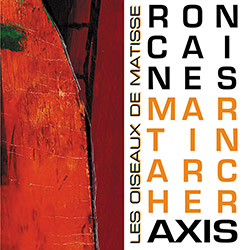
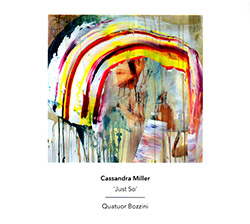


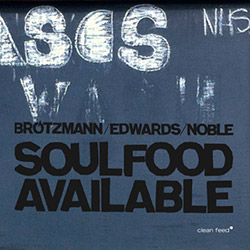


![Rodrigues, Ernesto / Nuno Torres / Guilherme Rodrigues: Whispers In The Moonlight - In Seven Movements [2CDs]](https://www.teuthida.com/productImages/misc4/35765.jpg)



![Cocks, Laura: FATHM [VINYL]](https://www.teuthida.com/productImages/misc4/36055.jpg)










![Ackerley / Prymek / Turner: All Hope With Sleeping Minds [CASSETTE]](https://www.teuthida.com/productImages/misc4/35950.jpg)
![Myers, David Lee : Tin Drop Tear [BOOK w/ DOWNLOAD]](https://www.teuthida.com/productImages/misc4/36030.jpg)



![Schindler, Udo / Sandy Ewen / Damon Smith: Munich Sound Studies Vols. 4, 5 & 6 [3 CDs]](https://www.teuthida.com/productImages/misc4/35966.jpg)






![Turbulence Orchestra & Sub-Units: Smear Out the Difficulties (Double Live) [2 CDs]](https://www.teuthida.com/productImages/misc4/36048.jpg)
![Perelman, Ivo / Tyshawn Sorey: Paralell Aesthetics [2 CDs]](https://www.teuthida.com/productImages/misc4/35871.jpg)


![Sjostrom, Harri: SoundScapes #4 Festival Berlin 2023 [3 CDs]](https://www.teuthida.com/productImages/misc4/35874.jpg)



![Glenn, Jordan: Flustered [CASSETTE]](https://www.teuthida.com/productImages/misc4/35948.jpg)


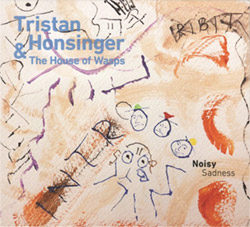
![Lindorff-Ellery, Evan: Church Recordings from Monhegan [CASSETTE]](https://www.teuthida.com/productImages/misc4/35949.jpg)
![Schindler, Udo / Werner Dafeldecker / Gunnar Geisse: Travelling Sound Images - Cognitive Transfers [Trio]](https://www.teuthida.com/productImages/misc4/35767.jpg)

![Egberth, Dennis: The Dennis Egberth Dynasty [VINYL]](https://www.teuthida.com/productImages/misc4/35549.jpg)


![Schindler, Udo / Rieko Okuda / Eric Zwang Eriksson: Disturbed Terrains [2 CDs]](https://www.teuthida.com/productImages/misc4/35330.jpg)






![Olencki, Weston : Pearls Ground Down To Powder [VINYL]](https://www.teuthida.com/productImages/misc4/35956.jpg)
![Myers, David Lee: Oculus [2CDs]](https://www.teuthida.com/productImages/misc4/35857.jpg)


![dustsceawung: dustsceawung [CASSETTE w/ Download]](https://www.teuthida.com/productImages/misc4/35753.jpg)




![Halls of the Machine: Atmospheres For Lovers And Sleepers [CASSETTE w/ DOWNLOAD]](https://www.teuthida.com/productImages/misc4/35806.jpg)



![AHC (Alexander Cooper): Lase [2 CDs]](https://www.teuthida.com/productImages/misc4/35754.jpg)



![Fagaschinski, Kai / Yan Jun : Graveyard Processions [VINYL w/ DOWNLOAD]](https://www.teuthida.com/productImages/misc4/35474.jpg)
![Brant, Cody / Carl Kruger: Smoke Detail [CASSETTE w/ DOWNLOAD]](https://www.teuthida.com/productImages/misc4/35551.jpg)








![Zorn, John / JACK Quartet: The Complete String Quartets [2 CDs]](https://www.teuthida.com/productImages/misc4/35609.jpg)

![Lonsdale, Eden: Dawnings [2 CDs]](https://www.teuthida.com/productImages/misc4/35480.jpg)







![Sanna, Claudio: Compositori Sardi Contemporanei II [2 CDs]](https://www.teuthida.com/productImages/misc4/35317.jpg)







![Zurria, Manuel: Fame di Vento [3 CDs]](https://www.teuthida.com/productImages/misc4/35167.jpg)

![Granberg, Magnus / Nattens Inbrott / Skogen: Holde Traume, Kehret Wieder! [2 CDs]](https://www.teuthida.com/productImages/misc4/35038.jpg)

![Electric Bird Noise / Derek Roddy: 8-10-22 [CD EP]](https://www.teuthida.com/productImages/misc4/35970.jpg)








![Elephant9 : Mythical River [VINYL]](https://www.teuthida.com/productImages/misc4/34624.jpg)



![Elephant9 with Terje Rypdal: Catching Fire [VINYL 2 LPs]](https://www.teuthida.com/productImages/misc4/35355.jpg)
![Deerlady (Obomsawin, Mali / Magdalena Abrego): Greatest Hits [VINYL]](https://www.teuthida.com/productImages/misc4/34876.jpg)







![Surplus 1980: Illusion of Consistency [CD]](https://www.teuthida.com/productImages/misc4/35069.jpg)
![Staiano, Moe: Away Towards the Light [VINYL + DOWNLOAD]](https://www.teuthida.com/productImages/misc4/35037.jpg)



![Caveira (Gomes / Sousa / Abras / Ferrandini): Ficar Vivo [VINYL]](https://www.teuthida.com/productImages/misc4/34643.jpg)
![Coley, Byron: Dating Tips for Touring Bands [VINYL]](https://www.teuthida.com/productImages/misc4/17906.jpg)

![Lost Kisses: My Life is Sad & Funny [DVD]](https://www.teuthida.com/productImages/misc4/lostKissesDVD.jpg)